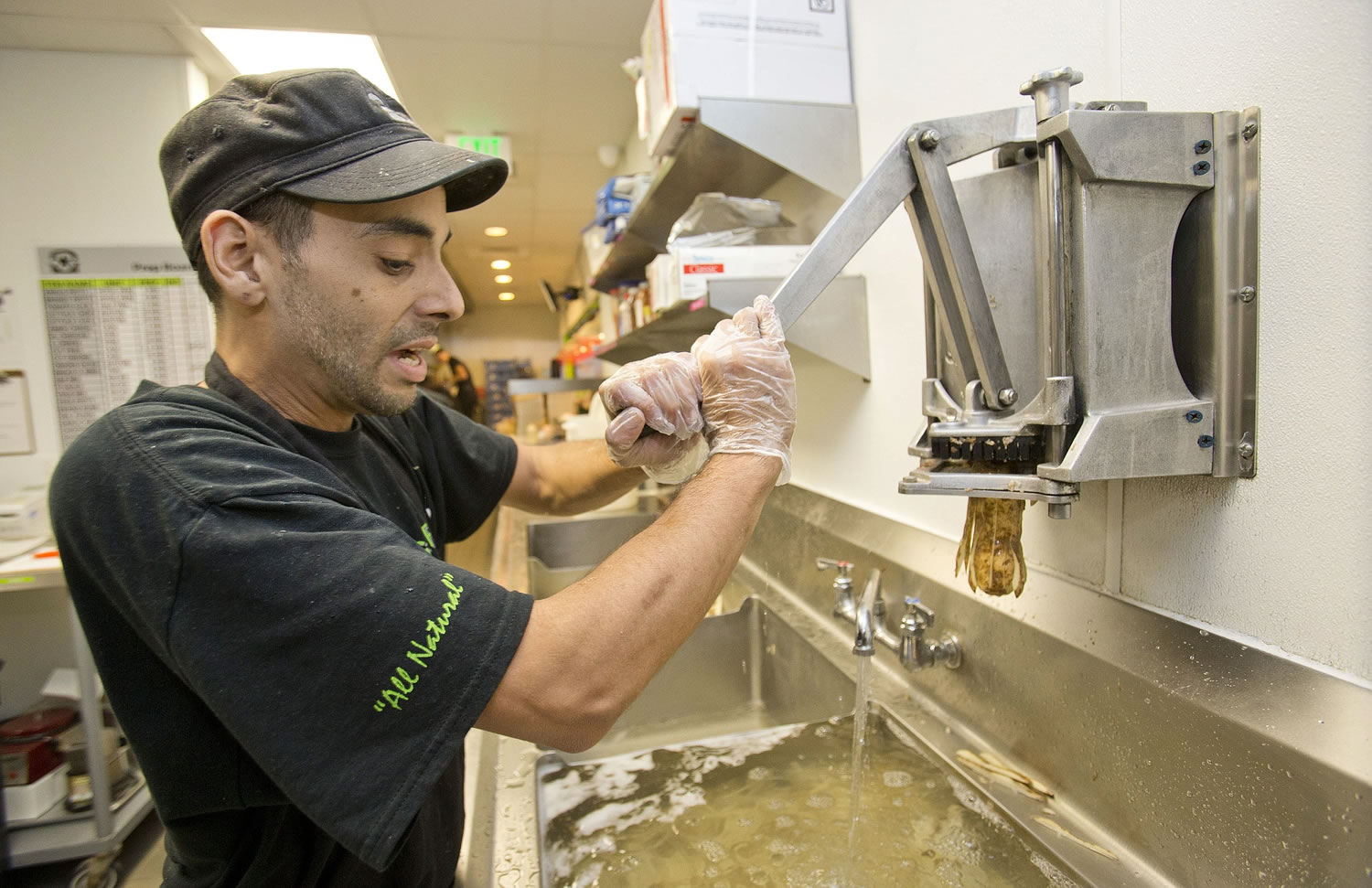WASHINGTON — There’s a good reason the U.S. economy is impressing the world right now despite a slowdown in the final three months of 2014: In a word, steadiness.
Companies have been hiring at healthy rates for the past year. Layoffs hover near historic lows. Auto sales are strong. Gas prices have sunk. Congressional budget fights have faded. Americans are increasingly confident.
All that fed a surge of consumer spending last quarter, offsetting weaker business spending caused in part by a pullback by oil drillers and a frail global economy.
The U.S. economy as a whole expanded at a 2.6 percent annual rate, the government said Friday, down from a sizzling 5 percent gain the previous quarter. Yet consumers signaled their optimism by spending at the fastest rate in nearly nine years.
“This hasn’t changed my picture on the strength and resilience of the U.S. economy,” said Scott Anderson, chief economist at the Bank of the West. “Almost all the drivers of consumer spending are pointing in the right direction.”
Nearly six years into the recovery from the Great Recession, the economy has finally gone from straining just to grow to posting consistently solid gains. The gains have come even though many households continue to struggle without much of a financial cushion. Nearly half say they spend all their income, go into debt or use savings to meet their expenses, a new analysis by the Pew Charitable Trusts has found.
A surging dollar is denting the earnings of U.S. companies that operate overseas. And energy firms have been hurt by falling oil prices, and as a result companies in the Standard & Poor’s 500 index are expected to report weak profit growth.
But collectively, consumers and investors are showing renewed faith in the economy.
On Friday, the University of Michigan said its sentiment index found that U.S. consumers are more confident than they’ve been since 2004. Also Friday, the government said wages and benefits are ticking up, a sign that steady job gains may be compelling employers to pay a bit more.
Most indicators suggest that the economy has surpassed a psychological threshold that has made businesses more comfortable with hiring and infused consumers with more enthusiasm.
“Psychology has been a big contributor to the improved level of performance in the United States,” said Carl Tannenbaum, chief economist at the bank Northern Trust.
At a time when Europe, Asia and South America face deep anxieties, the U.S. economy’s greatest strength might be its sturdiness.
The consensus expectation is that the U.S. economy will expand a solid 3 percent this year, well above the recovery’s 2.2 percent annual average. This has made U.S. stocks and Treasurys comparably attractive — havens from the risks from Europe’s prolonged slump, collapsing oil prices, China’s slowdown and Japan’s struggles to stave off recession.
Yet the U.S. economy still has additional room to continue expanding. In current dollars, the median household income of $54,417 remains about $1,800 below its late 2007 levels, according to Sentier Research. More than 5 million households owe more on their mortgages than their homes are worth, according to the real estate data firm CoreLogic.
Because the U.S. economy is rebuilding its core without relying heavily on mortgages, credit cards and other debt, it has avoided the sharp swings and shocks that can tip an economy into recession.
“You’re getting solid consistent growth,” said John Canally, chief economic strategist at LPL Financial. “If you have a slow recovery, you don’t build up the excesses that ultimately cause a recession.”
Investors are still trying to adjust for this newfound steadiness. The rush of foreign money into U.S. Treasurys has cut the yield on 10-year note to about 1.67 percent from 2.9 percent a year ago.



